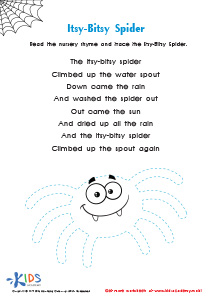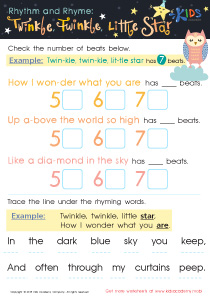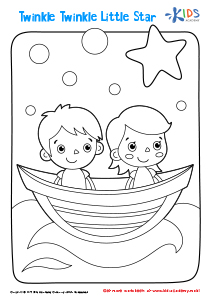Nursery Rhymes Worksheets for Ages 5-9
5 filtered results
-
From - To
Discover our delightful collection of Nursery Rhymes Worksheets tailored for children aged 5-9! These engaging activities are designed to enhance reading, comprehension, and creativity through timeless rhymes. Each worksheet is brimming with colorful illustrations and exercises that promote critical thinking, vocabulary building, and a love for classic poetry. Whether tracing words, matching rhymes, or interpreting verses, kids will have endless fun while developing essential literacy skills. Perfect for both classroom and at-home learning, these worksheets provide a joyful educational experience that nurtures young minds. Explore an enchanting world of nursery rhymes and watch your child’s confidence flourish!
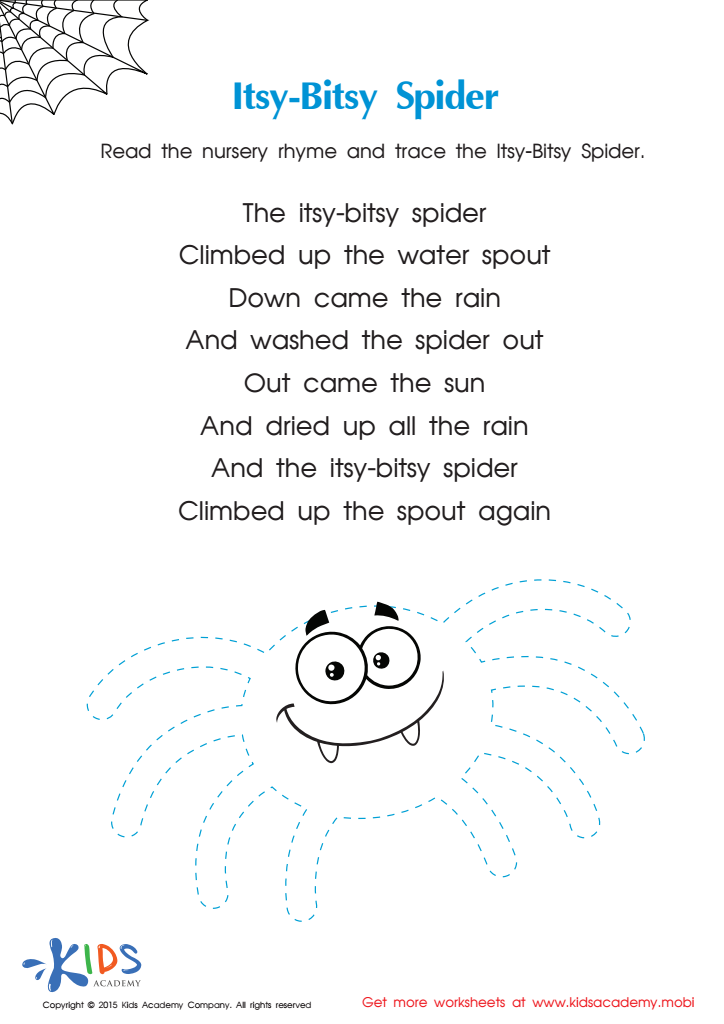

Itsy Bitsy Spider Nursery Rhyme PDF Worksheet
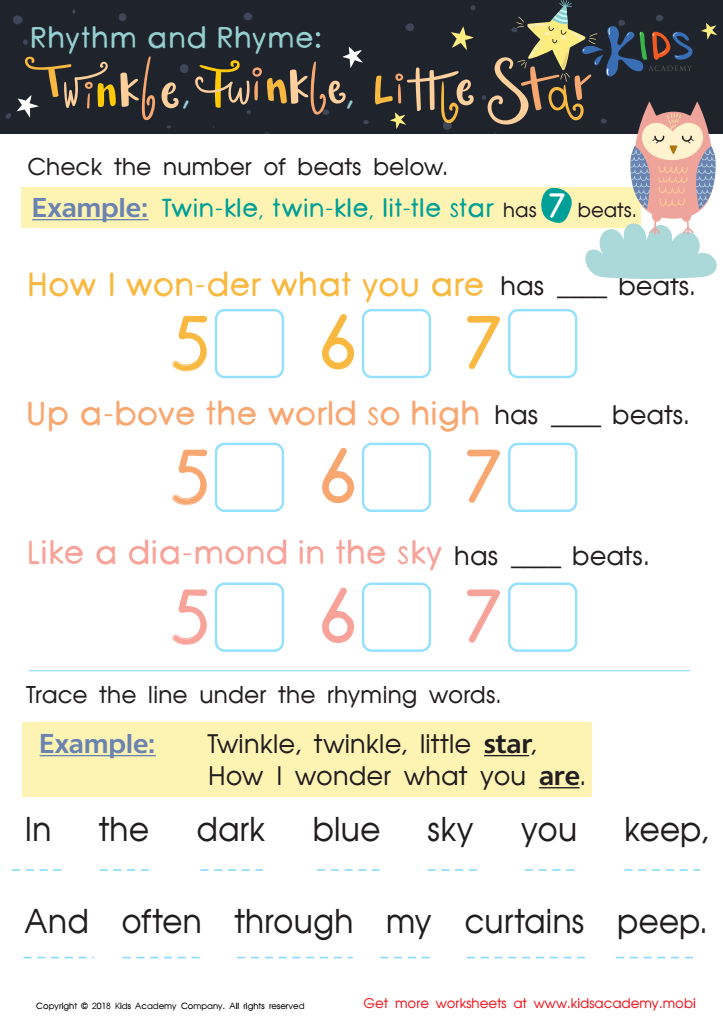

Rhythm and Rhyme: Twinkle, Twinkle, Little Star Worksheet


The Five Little Monkeys Nursery Rhyme Worksheet
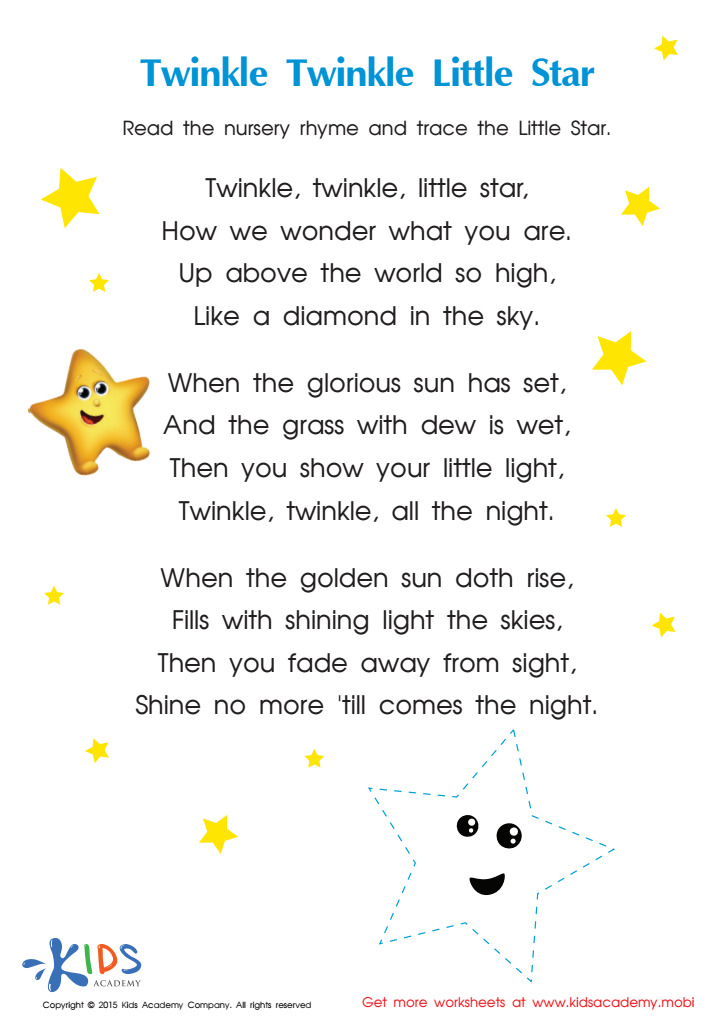

Nursery Rhymes: Twinkle Little Star Worksheet
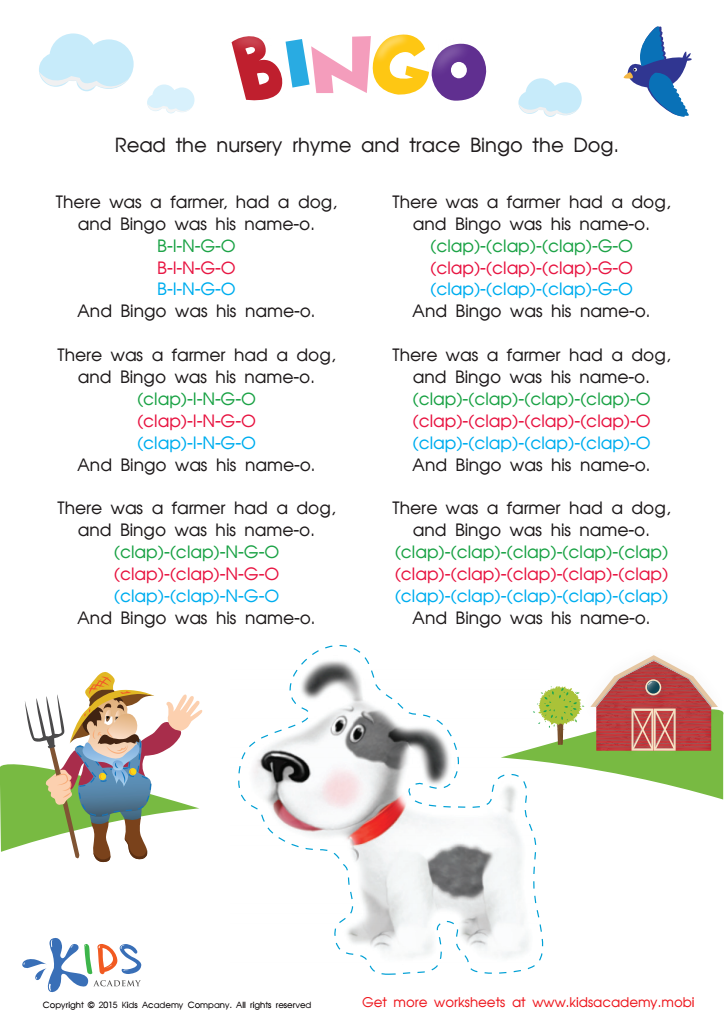

Nursery Rhymes: The Bingo Song Worksheet
Parents and teachers should care about nursery rhymes for children aged 5-9 because these timeless verses play a crucial role in early childhood development. Nursery rhymes help to enhance linguistic skills by exposing children to the rhythm, cadence, and melody of language, making it easier for them to grasp phonetic patterns and expand their vocabulary. Repetition in nursery rhymes also aids in memory retention, a foundational aspect of learning.
Cognitively, children learn sequencing and predictability through the repetitive nature of rhymes, which reinforces a sense of order. Socially and emotionally, these rhymes often encourage group activity, fostering a sense of community and cooperation among young learners. Singing and reciting rhymes together can build confidence and public speaking skills while creating a joyful, engaging learning atmosphere.
Moreover, many rhymes incorporate narrative elements, teaching basic story structure and enhancing imagination. Early engagement with rhymes also sets the stage for a lifelong love of reading and literature. In essence, nursery rhymes integrate multiple areas of development—language, cognitive, social, and emotional—making them an invaluable educational tool for young children. Therefore, prioritizing nursery rhymes can create a strong, enjoyable foundation for future academic success.

 Assign to the classroom
Assign to the classroom






